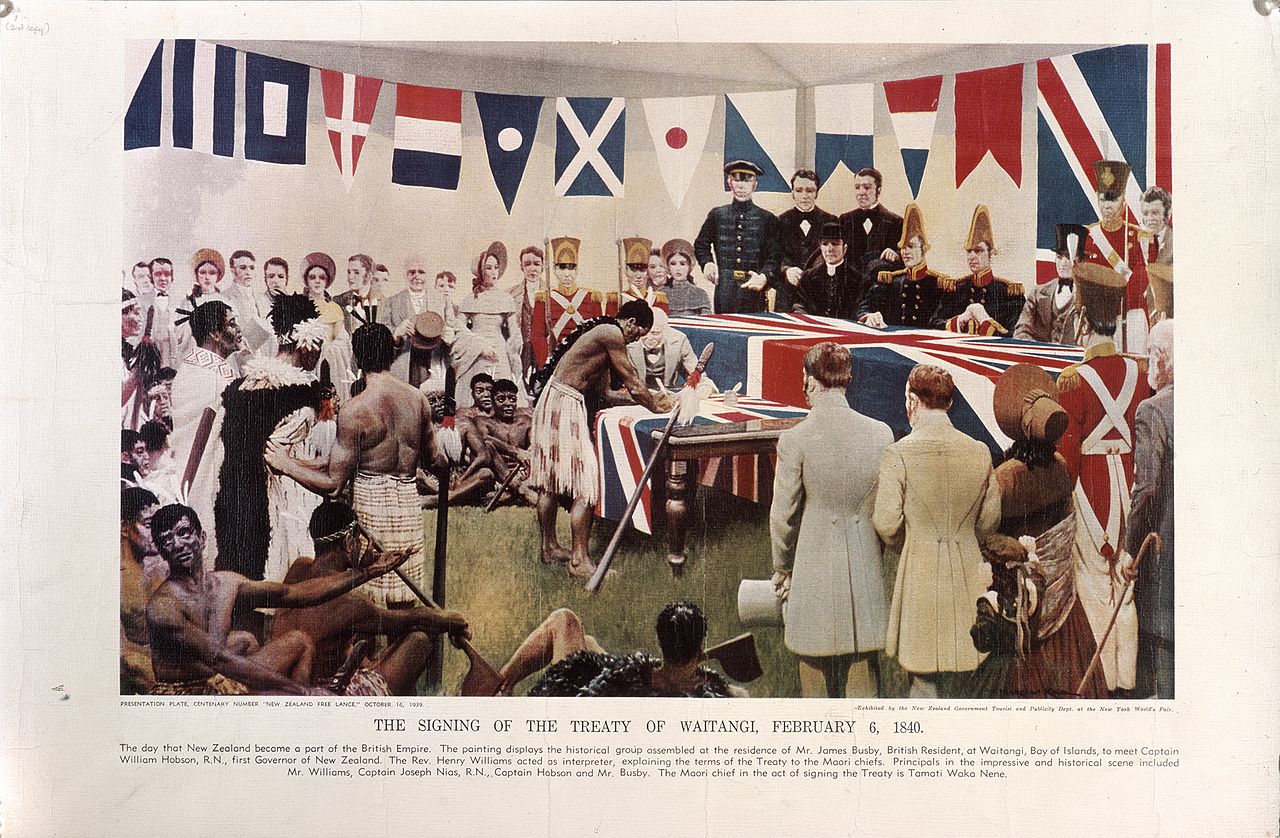Waitangi Day has been and gone with much ink spilled over what it means for present-day New Zealand, and where we go from here.
The Treaty was drafted in English and translated into Maori and, while there are disputes about the meanings of different terms, there is no compelling evidence that the Treaty said anything more, or indeed less, than the three articles below:
1) The Chiefs of the Confederation of the United Tribes of New Zealand and the separate and independent Chiefs who have not become members of the Confederation cede to Her Majesty the Queen of England absolutely and without reservation all the rights and powers of Sovereignty which the said Confederation or Individual Chiefs respectively exercise or possess or may be supposed to exercise or to possess over their respective Territories as the sole sovereigns thereof.
2) Her Majesty the Queen of England confirms and guarantees to the Chiefs and Tribes of New Zealand and to the respective families and individuals thereof the full exclusive and undisturbed possession of their Lands and Estates Forests Fisheries and other properties which they may collectively or individually possess so long as it is their wish and desire to retain the same in their possession, but the Chiefs of the United Tribes and the individual Chiefs yield to Her Majesty the exclusive right of Pre-emption over such lands as the proprietors thereof may be disposed to alienate at such prices as may be agreed upon between the respective Proprietors and persons appointed by Her Majesty to treat with them in that behalf.
3) In consideration, thereof Her Majesty the Queen of England extends to the Natives of New Zealand Her royal protection and imparts to them all the Rights and Privileges of British Subjects.
In Te Tiriti, the Maori translation, several keywords were used in the translation for clarity. For instance:
In article 1: Kawanatanga which means complete sovereignty over the land: the Chiefs ceded sovereignty to the Crown.
In article 2: Tino rangatiratanga – whilst there is no unique English translation it was used to establish the property rights of the Chiefs over their lands and estates, forests, fisheries and other properties. It also clearly spelled out that they, the Chiefs, have the right to sell their land exclusively to the Crown.
In article 3: Tikanga Katoa translates to customs and beliefs, but in this context, it specifies that Maori would have the same rights and privileges as British subjects.
You can be forgiven for wondering how anyone can believe that the Chiefs did not cede sovereignty when it is clear in any translation that they did.
The ‘principles’ of the Treaty are referred to in legislation and often quoted in various forms in the media. But interestingly, if you conduct a word search of the Treaty document there is no mention of ‘principles’ anywhere in the Treaty.
If principles were intended to be included in the Treaty, they would have been clearly spelled out. But they were not.
The Treaty is also referred to as a ‘partnership’ between Maori and the Crown.
This reference to partnership arose from the Lands Case 1987, where Maori interests argued that there should be fiduciary duties, like those imposed on Trustees (ie duties to act fairly and honestly with the beneficiaries).
The court, however, saw the duties as more ‘akin’ to those owed by members of a partnership (ie partners are required to act honestly and show fairness and good faith to each other). ‘Akin’ means similar to but different from. The judgment does not say that the Treaty creates a partnership. It is hard to reconcile how a treaty with Maori, who ceded complete sovereignty to the Crown, could be interpreted as a partnership.
Unfortunately, historical revisionists perceive the Treaty as an empty vessel that they can fill with their own view of how New Zealand should be.
The Treaty document is a relatively simple but important one, and while it is a crucial founding document, it is not the means to cure all ills. There were breaches of the Treaty, and they are being addressed via the settlement process. We must continue this.
It is very important that we all know and understand the Treaty.
We should wary of those who wish to rewrite history because if they succeed they will divide New Zealand.
And surely, that is the last thing we want to happen…

